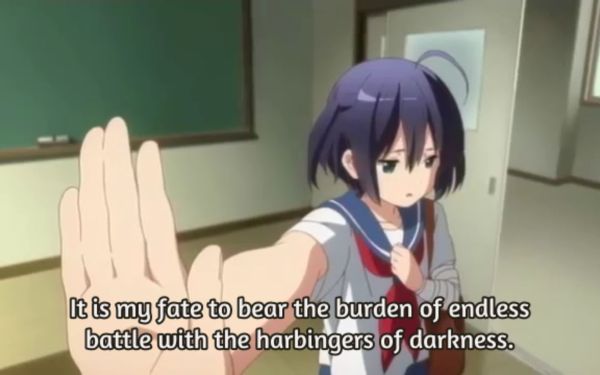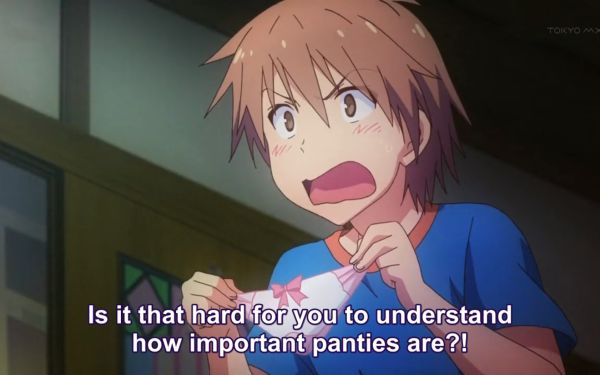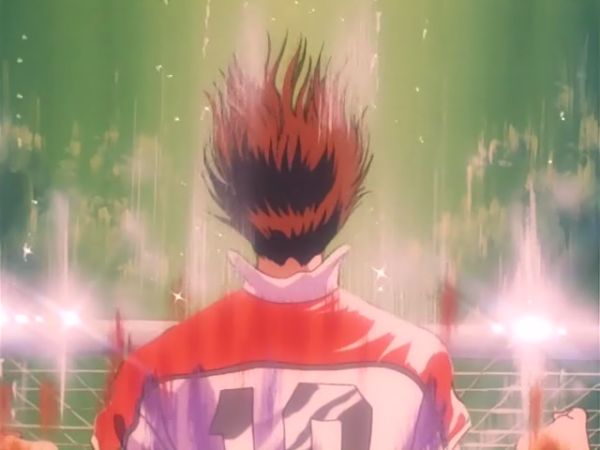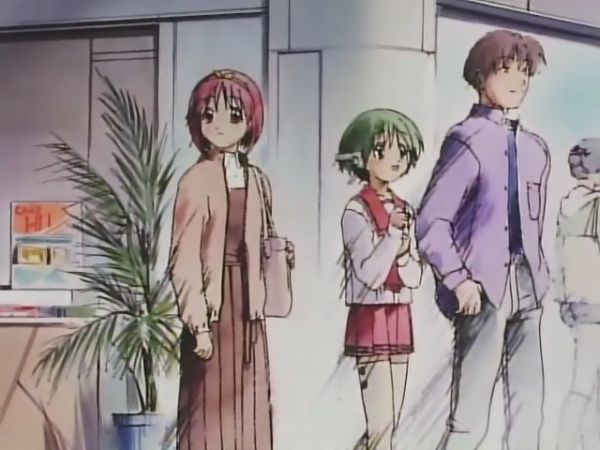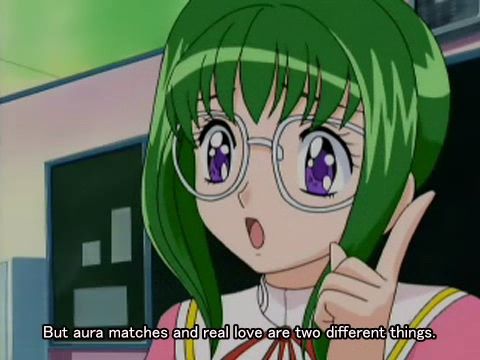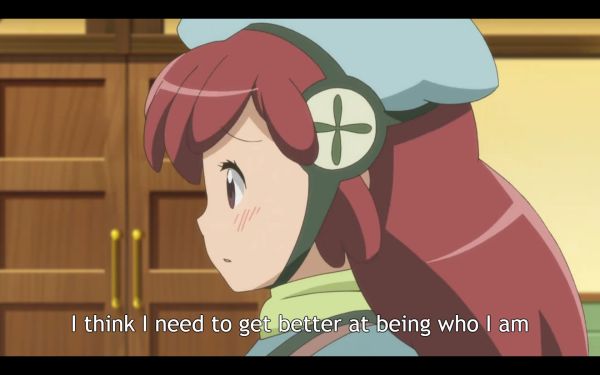
A minor character – in more than one sense of the word – from Log Horizon. Even these are surprisingly well developed (in this case only in one sense of the word, thankfully).
I have belatedly finished watching the second season of the anime Log Horizon. (Legally, in this case on Crunchyroll which is a site that lets you stream anime and read manga for a quite reasonable fee, and in some cases for free but with a time delay. They don’t have light novels yet, though, as far as I can see, but recently they have a lot more manga. I watched the anime, but it is based on light novels that I have not yet read.)
The novels fall squarely in the LitRPG category, which I have mentioned before. This genre is stories that take place inside roleplaying games, or worlds nearly indistinguishable from roleplaying games. In all cases I know of, this refers to MMORPGs, massively multiplayer online roleplaying games. While I am sure there is a lot of fanfiction on the Internet based on existing games, the games in the LitRPG books are original creations which may be more or less vaguely similar to existing games, but generally more advanced. As such the stories are usually set in the future, where games have become even more immersive. And then, in several of these stories, the characters find themselves literally transported into the game world, a parallel world that is now their new reality.
This is also the premise for Log Horizon. One day after a new expansion to a popular game has been rolled out, suddenly the players find themselves trapped in the game, their in-game avatars now their bodies, and the game world fully real to all senses. This causes various problems at first, for instance at first you cannot make food without the in-game cooking skill even if you know how to do so in real life. Some of the strongest guilds try to become rulers of the cities and enslave others. The tentative main character of the story is Shiroe, a young man who plays a fairly pure support class (Enchanter-Scribe) but is fiercely independent and introverted by nature. He is valued for his obsessive knowledge of the game and as a master strategist, and manages to organize a “round table” of different types of guilds to serve as a loose kind of government, preventing the player-killer guilds from taking over the capital city. (Players that are “killed” in the game revive at the cathedral, but it is said that each death causes you to lose some of your memories from Real Life. As such, most players avoid it as much as possible, but some seek it out.)
While Shiroe is an interesting personality, the story really shines because of its many supporting characters, which are given a great deal of personality each, and interact in sometimes dramatic and sometimes comical ways. In this regard, Log Horizon differs from many LitRPG stories, including some that have been made into anime. In a way, it could be said that these are really single-player experiences. The most extreme example I can think of is Overlord, in which only one player is transported into the alternate world, as far as we know, although certain events imply that one or more others may also be there. The rest of the cast in Overlord have personalities, but are clearly marked as non-player characters and therefore inherently less real. The perhaps most famous LitRPG anime is Sword Art Online, in which there are thousands of players, but the main character Kirito is written as superior both in skill and personality, causing the other players to seem largely irrelevant except for his love interests.
A concept often used about amateur writers (and especially prevalent in Fanfiction) is “Mary Sue”, often called “Marty Stue” for male characters. A Mary Sue is a character that is supposed to be relatively ordinary, but is written as superior in every way, unbeatable and ridiculously overpowered in every way that counts. The Mary Sue is often given character flaws that are not flaws, often an excessive humility that serves only to highlight their superiority. The story treats the Mary Sue differently from everyone else.
In Log Horizon, Shiroe is possibly the smartest person in the game, but he is limited by his supporting class character. He only shines when he can make others shine. You will not see Shiroe stand up alone against an army of enemies and defeat them singlehandedly. But because of his reliable support, he is loved by his friends and they go out of their way to help him even if they don’t always understand his plan. Several of the other characters are given opportunities to shine in their own right, including a large story arc featuring some of the underage players going on a quest.
Log Horizon is not the only LitRPG anime with multiple well-developed personalities. There is also Grimgar of Fantasy and Ash, which I actually encountered as a novel before I saw the anime. The main characters are few but well developed, including one who dies partway through the story. This story differs from most in that although the world is similar to a game world, the characters do not arrive there by playing a game.
***
I wish I could write stories like that, with multiple believable characters. But that is still beyond me. I am now past 40 000 words on my designated NaNoWriMo novel of the year, but it is a rough patch. I had hoped that the colorful personalities in the Royal Art Academy of Greater Akikei would interact with each other and the narrator character to fill this part of the story, but so far they have remained flat and hiding in the shadows. One of them is actually kind of active, but she is too much of a cardboard caricature, not a believable person like the two main characters. She certainly does not add much in the way of romantic tension, although I will give her a few points for trying. The rest are little more than nicknames and I find myself unable to wake them up.
Oh well, it is good that I am not a professional writer after all. I guess I shall continue in my office job until I die or am disabled.


